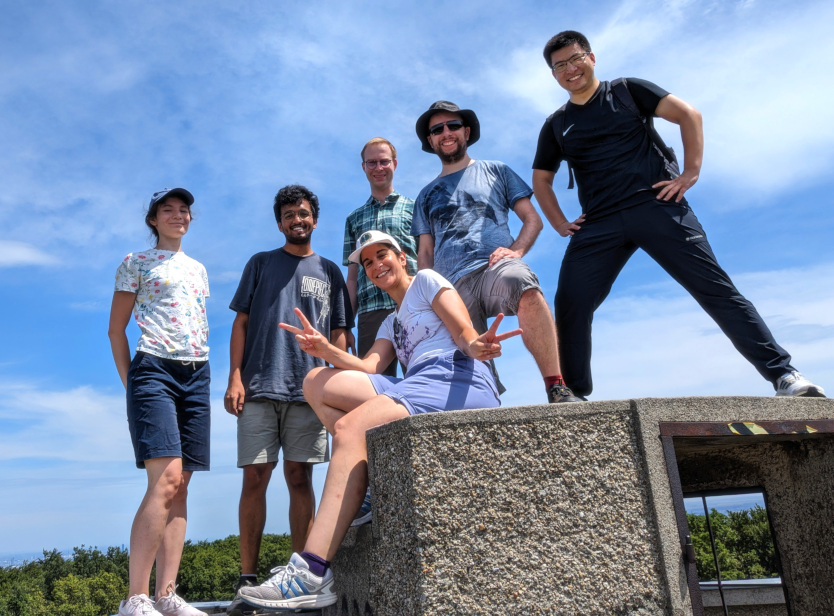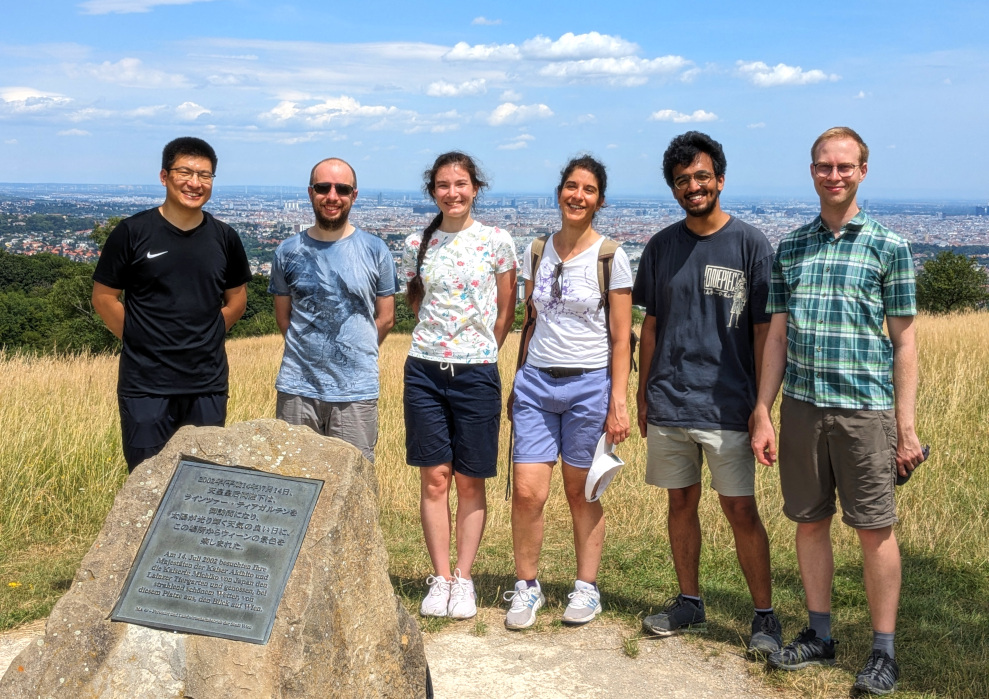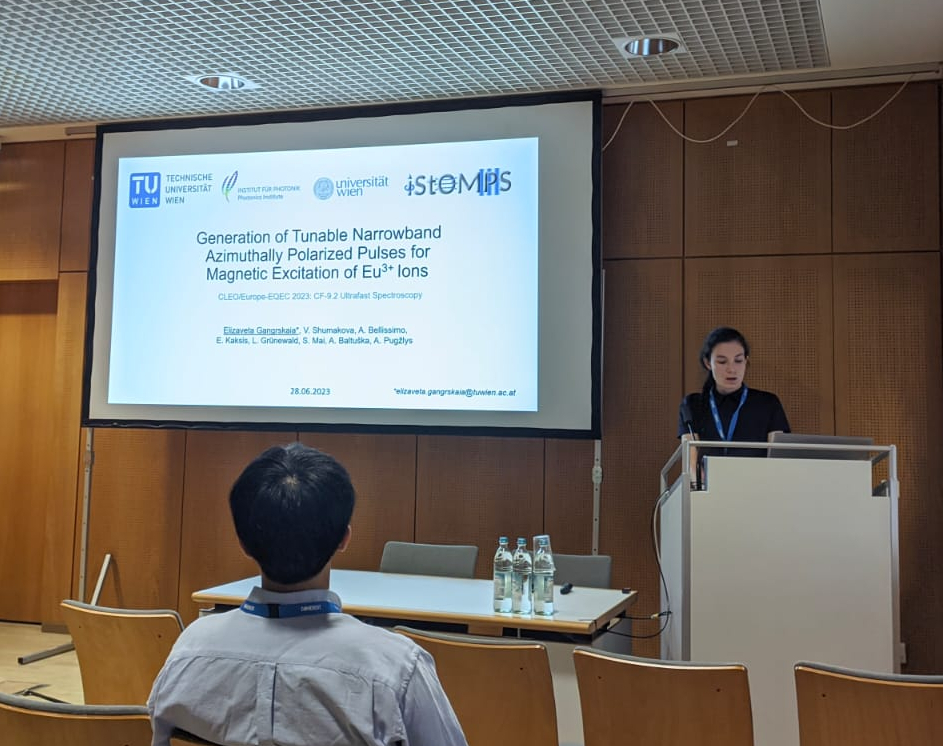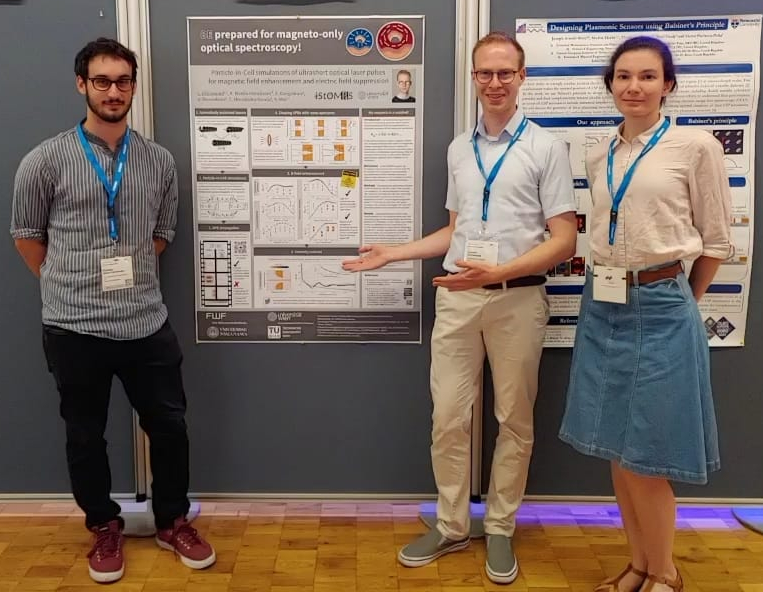In July, Lorenz and Rahul represented iStOMPS on the 3rd International Student Symposium of the Doctoral School in Chemistry, that took place in Vienna.
As a major event of the year the DoSChem symposium gathers students and faculty from different fields in Chemistry, allowing the students to present their research and to interact and exchange on all levels.
On this event, Lorenz gave a talk about “Particle-In-Cell Simulations for Magneto-Only Optical Spectroscopy”, in which he explained the numerical simulations within the iStOMPS project and its implications from a chemical perspective. Moreover, he outlined the possible applications and the impact for spectroscopy.
Rahul on the other hand, presented a poster “Computing Energies with Minimal Effort (for the computer)“, in which he presented a scheme for computing accurate energies for Eu3+ ion efficiently. The new method is based on selecting only the states that couple with each other for a perturbation theory treatment.
Month: July 2023
iStOMPS goes (to the) wild (boars)
On July, 12th our team enjoyed a beautiful sunny summer day going hiking in one of the last pieces of the original Viennese Woods – that is the Lainzer Tiergarten (or Zoo), located on the outskirts of the city. Equipped with some good sandwiches and a lot of fun and joy, we made a “big round” in this special recreational area. Since Ale lives in Hütteldorf, as a local, she proposed the following route (highlighted below), entailing some nice panoramic view points, such as the “Hubertuswarte” (see first picture below) and the “Kaiserwiese” (second picture).

The Lainzer Zoo offers a unique natural landscape with a wealth of flora and fauna — e.g., there are generally lots of wild boars — as well as cultural-historical exhibitions in the Hermesvilla. In other words, it is a place that offers relaxation, experience in nature and education and, as you can judge from our smiles, our iStOMPS team enjoyed this excursion very much!

iStOMPS on top of the “Hubertus Warte”

Panoravic viewpoint of the “Kaiserwiese”
CLEO Europe 2023
On June 26-30, 2023, Lorenz and Elizaveta attended the Conference on Lasers and Electro-Optics/Europe – European Quantum Electronics Virtual Conferences (CLEO®/Europe-EQEC 2023), which took place in Munich, Germany. CLEO®/Europe-EQEC 2023 are Europe’s largest conferences on photonics, laser technology, and related research fields. The conference program featured plenary and keynote lectures, tutorials, talks, and poster sessions. We also visited the huge exhibition LASER World of PHOTONICS to see the latest trends and innovations in photonics industry.
Elizaveta delivered a talk titled “Generation of Tunable Narrowband Azimuthally Polarized Pulses for Magnetic Excitation of Eu3+ Ions” in the session “Ultrafast Spectroscopy”. She described a developed experimental setup for generation of narrowband spectrally tunable ultrafast pulses with azimuthal polarization.

Lorenz presented a poster “Particle-in-Cell simulations of ultrashort optical laser pulses for magnetic field enhancement and electric field suppression” with his investigations of metallic apertures of various shapes and their role in the magnetic field enhancement.

We enjoyed the diverse scientific program, social dinner, networking, meeting our collaborators, as well as Munich sightseeing and cultural events.
ICQC 2023
From 26.06.2023 to 1.07.2023, Rahul visited the 17th International Congress of Quantum Chemistry, held in Bratislava, Slovakia. The International Congress of Quantum Chemistry (ICQC) is held triennially under the patronage of the International Academy of Quantum Molecular Science. The scientific program was composed of invited plenary lectures, selected invited contributions and presentations, and discussions in two poster sessions. During the conference, Rahul presented his poster, “Efficient and accurate relativistic ab-initio calculations of electric and magnetic dipole transitions in Eu3+ complexes“
In the poster, Rahul introduced two approaches for choosing spin-free states from a CASSCF calculation for subsequent CASPT2 analysis. The initial approach, named “Tree-SOCI,” involves the selection of states according to spin-orbit coupling selection rules for atoms, whereas the second approach, called “Sel-SOCI,” focuses on selecting states based on their relative coupling strengths with a set of states of interest, similar to other selected CI approaches.
